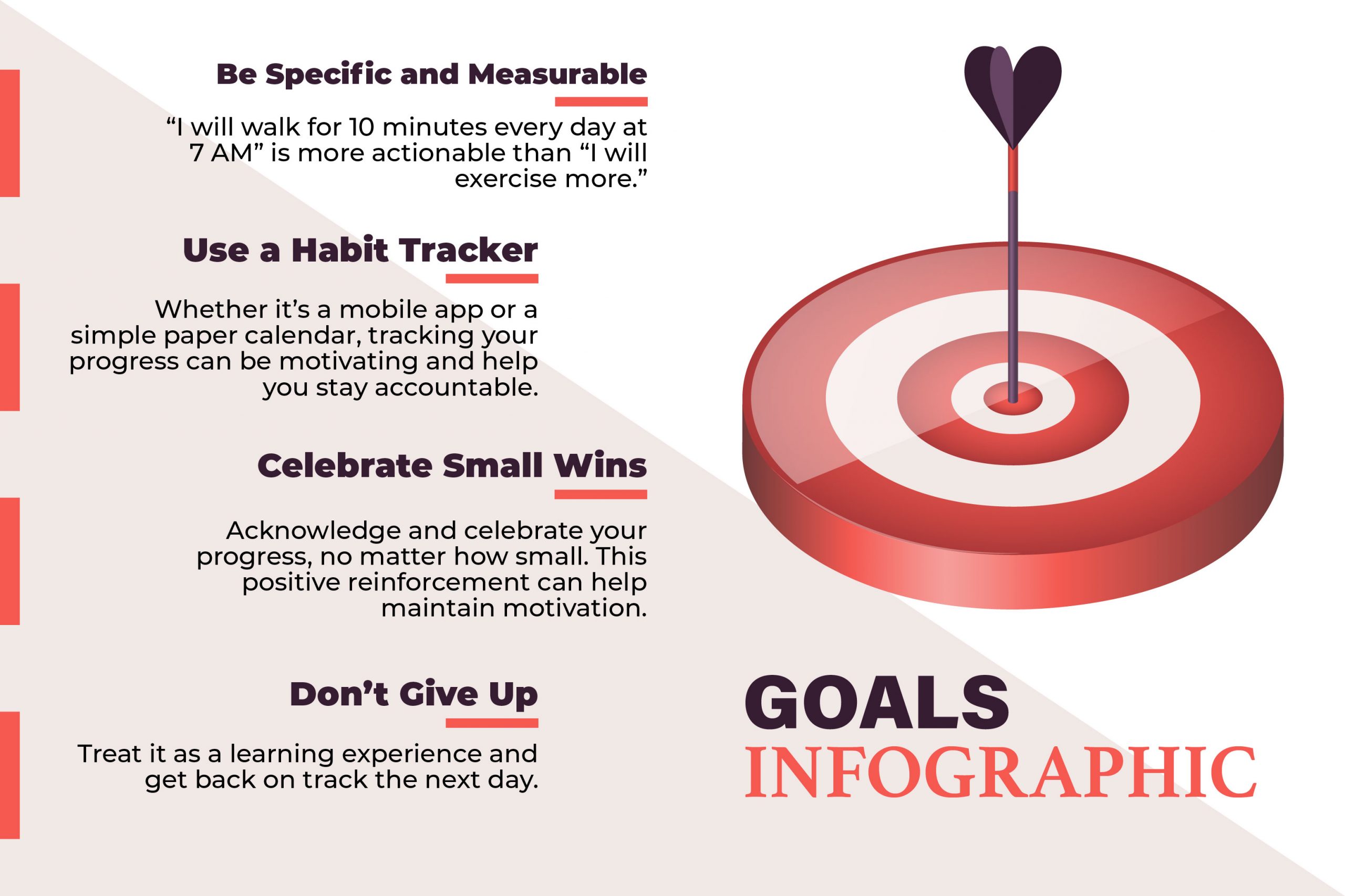10 Achievable New Year’s Resolutions for a Better You
As the New Year approaches, many of us feel inspired to make positive changes in our lives. However, setting overly ambitious goals often leads to disappointment. This year, why not focus on achievable resolutions that can make a real difference? Here are ten realistic resolutions to consider:

1. Read One Book a Month
Reading is a great way to expand your knowledge, improve vocabulary, and reduce stress. Start with just one book a month – that’s only about 20-30 pages a day. Choose topics you’re genuinely interested in to make it enjoyable rather than a chore.
Example: Sarah, a busy marketing executive, started with easy-to-read novels for her commute. By year’s end, she had not only read 12 books but also rediscovered her love for reading.
2. Take a 10-minute Walk Daily
You don’t need to run marathons to improve your health. A simple 10-minute walk each day can boost your mood, increase energy levels, and improve overall fitness. It’s easy to fit into even the busiest schedules.
Anecdote: Tom, a software developer, started taking short walks during his lunch break. He found that these brief outings helped clear his mind and actually improved his productivity in the afternoon.
3. Learn One New Recipe Each Month
Cooking at home is healthier and more economical than eating out. Challenge yourself to learn one new recipe each month. By the end of the year, you’ll have 12 new dishes in your culinary repertoire!
Example: Mike, a college student, started with simple pasta dishes and worked his way up to impressive stir-fries. Not only did he save money, but he also impressed his dates with home-cooked meals.
4. Practice Gratitude
Take a few minutes each day to write down three things you’re grateful for. This simple practice can significantly improve your mental health and overall outlook on life.
Anecdote: Lisa, dealing with a stressful job, started a gratitude journal. After a month, she noticed she was sleeping better and feeling more positive about her work.
5. Declutter One Area Each Month
Instead of trying to organize your entire life at once, focus on decluttering one small area each month. Start with a drawer, then move to a closet, and gradually work your way through your living space.
Example: The Johnson family made decluttering a monthly family activity. By year’s end, they had donated five boxes of unused items and their home felt more spacious and organized.
6. Drink More Water
Staying hydrated is crucial for your health. Set a goal to drink an extra glass of water each day. You can gradually increase this over time until you’re meeting the recommended daily intake.
Anecdote: Alex, who often suffered from headaches, started carrying a water bottle everywhere. Within weeks, he noticed fewer headaches and more energy throughout the day.
7. Practice Mindfulness for 5 Minutes Daily
Mindfulness can reduce stress and improve focus. Start with just 5 minutes a day of mindful breathing or meditation. There are many free apps available to guide you through this practice.
Example: Maria, a high school teacher, introduced a 5-minute mindfulness session at the start of each class. Both she and her students reported feeling calmer and more focused.
Related Posts and Printables:
8. Save a Small Amount Each Week
Financial health is important too. Start by saving just $5 or $10 each week. As you get used to this habit, you can gradually increase the amount.
Anecdote: Dave started putting $10 a week into a savings jar. By the end of the year, he had enough for a weekend getaway he thought he couldn’t afford.
9. Reduce Screen Time Before Bed
Improve your sleep quality by reducing screen time before bed. Start by putting away all devices 15 minutes before your bedtime, and gradually increase this to 30 minutes or an hour.
Example: Emma replaced her pre-bed social media scrolling with reading. She found she fell asleep faster and woke up feeling more refreshed.
10. Learn a New Word Each Week
Expand your vocabulary by learning one new word each week. Use it in conversation or writing to help it stick in your memory.
Anecdote: A book club decided to share a new word at each meeting. Members enjoyed challenging each other to use these words in their discussions, making their conversations more engaging and fun.
Remember, the key to successful resolutions is to start small and be consistent. These achievable goals can lead to significant positive changes over time. Here’s to a happier, healthier new year!

Tips for Sticking to Your 10 Achievable New Year’s Resolutions
While setting achievable resolutions is a great start, maintaining them throughout the year can be challenging. Here are some tips to help you stay on track:
- Be Specific and Measurable: Instead of vague goals, make your resolutions specific and measurable. For example, “I will walk for 10 minutes every day at 7 AM” is more actionable than “I will exercise more.”
- Write Them Down: Put your resolutions in writing and place them somewhere visible. This serves as a constant reminder of your goals.
- Use a Habit Tracker: Whether it’s a mobile app or a simple paper calendar, tracking your progress can be motivating and help you stay accountable.
- Start Small and Build: Begin with small, manageable steps and gradually increase the difficulty. This builds confidence and makes the habit more sustainable.
- Plan for Obstacles: Anticipate potential challenges and plan how you’ll overcome them. For example, if you know you struggle to wake up early for a walk, prepare your walking clothes the night before.
- Celebrate Small Wins: Acknowledge and celebrate your progress, no matter how small. This positive reinforcement can help maintain motivation.
- Find an Accountability Partner: Share your resolutions with a friend or family member who can check in on your progress and offer support.
- Be Flexible: If a resolution isn’t working for you, it’s okay to modify it. The goal is progress, not perfection.
- Don’t Give Up After a Setback: If you miss a day or slip up, don’t abandon your resolution. Treat it as a learning experience and get back on track the next day.
- Review and Adjust Regularly: Set aside time each month to review your progress. This allows you to celebrate successes and make adjustments as needed.
A Real-Life Example
Jenny, a graphic designer, decided to adopt healthier habits this year. She started by setting specific goals: drink 8 glasses of water daily, take a 15-minute walk during lunch break, and read for 20 minutes before bed.
She used a habit-tracking app on her phone and placed a water bottle with marked levels on her desk. For accountability, she joined a book club with colleagues for her reading goal. When she struggled with evening reading due to work deadlines, she adjusted her goal to audiobooks during her commute.
By March, drinking water had become second nature. Her lunchtime walks turned into enjoyable catch-ups with coworkers. And while she didn’t always manage 20 minutes of reading, she completed more books than ever before.
Jenny’s success came from setting clear, achievable goals, tracking her progress, being flexible, and not giving up when things got tough. By December, these small changes had significantly improved her daily routine and overall well-being.*
Remember, forming new habits takes time. Be patient with yourself and focus on the progress you’re making, no matter how small it may seem. With consistency and these strategies, you’ll be well on your way to making lasting positive changes in your life.






